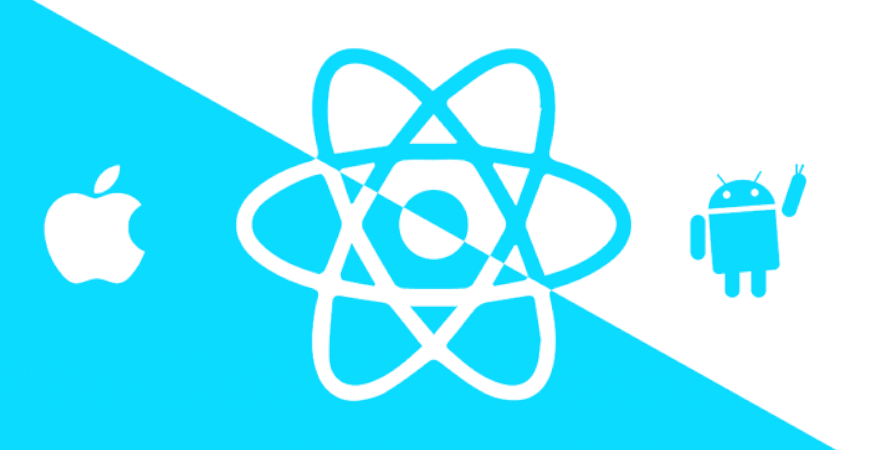TOP Reasons Why You Should Create React Native Applications in 2020
React Native, developed by Facebook, is an open-source platform for developing mobile apps for iOS as well as Android. React Native app development has gained immense support from its users, and is bound to be one of the most popular platforms for hybrid mobile app development in the coming future. Developers, by using this platform, can create cross-platform applications using React but having the native platform capabilities as well.
Apps built with React Native will have no adverse effect on quality or robustness. Some of the React Native app development companies in India include Geoxis, Vrinsoft Technology, Samiflabs, Metizsoft Solutions, Bacancy Technology, and Cron J. React Native app developers in India Are today as much sought after as are the web developers or other application developers.
So far we just discussed the WHAT IS part of React Native. Let’s move on to discussing why React Native app development services will benefit their users.
Why React Native is important in 2020?
React Native can be used for developing applications across many different platforms such as the web, iOS, and Android. React Native components can be used across iOS and Android equally as they have counterpart rights.
Developing with React Native is much simple, quick, and expedient instead of developing with React. React Native has numerous advantages compared to others when it comes to developing mobile applications. As businesses in the 2020 boom, the usage of React Native is going to become a trend. This because of the following advantages:
Advantages of React Native
Less Development Time and Less Cost as such
As React Native can quickly adapt to iOS as well as Android with minor changes, the time and cost involved in developing such an app are considerably less. React Native apps take around 33% less time than those developed using other coding languages.
Code Re usability
As mentioned in the previous point, apps developed with React Native can use the same code with minor modifications in order to deploy on Android or iOS. There is no need to use separate languages such as Java or Swift when developing for different platforms.
Remarkable UI and UX
Apps developed with React Native load faster, and also have a great user experience. They are also easy to navigate. React Native Apps UI consists of native widgets executing impeccably. Even the most complex of apps run smoothly with React Native.
Live Update
One of the astonishing features of React Native apps is the support provided through live updates by the developers of the app. The developers can easily send the live update to the users without the users having to download it from Google Play Store or AppStore.
This feature allows developers to introduce real-time code changes and make corrections while the app is loading. This allows users to immediately get updated versions of the software. The mechanism is also very smooth and fine-tuned.
Memory Consumption
As third-party plugins are supported by React Native, there is no need depend on applications such as WebView for adding functionalities to your app. React Native allows the developers to link the plug-in with a selected native module and perform the desired functionality. As such the app consumes less memory, unlike conventional mobile apps.
Modular Interface
As React Native has a modular architecture, it becomes a lot easier to debug code. Also, it is easier for developers to understand existing projects. Due to this feature, a new developer can also understand a project from an in-between stage. Even testers find it easier to test the app. An app developed using React Native can also be easily ported to another framework if any such need arises.
Stable High Performing Apps
React Native uses its codebase with a streamlined, linking approach. So to change one thing, you need to change its state before updates are applied. This results in a more stable and reliable app than other approaches for creating cross-platform applications. Moreover, using native APIs to render code instead of WebView results in better-performing apps.
Dynamic Experience
This is a feature for the developers. The developers can apply any kind of changes or updates to the existing code without needing to restart the app. Additionally, developers can use flexbox to build Android, iOS, and web app templates.
They can add software from Chrome Developer to React Native and use debugger and profiling tools. If a developer transfers an existing application to the React Native platform, they may integrate the components into the current code whatever their type.
The Budget
For businesses that are just starting up, the budget is something that needs to be considered. You might find an app that has all the functionality you need but when it comes to Price and Cost of the app, you need to make certain it falls in your budget.
Because developing with React Native takes less time as developers have to code less even for multiple platforms, these apps will be easy on the pocket of the business.
Runs like a native app
Apps developed using React Native will run like native apps even if they have been developed as a Hybrid app. The basic components of React Native affirm the architecture of both the Android and the iOS as well. Thus it makes mobile app development very easy.
New in React Native
Since the arrival of the latest update of React Native, React Native has seen many improvements in its functionalities that are bound to force the businesses to opt for it for mobile app development. Users will now come across a version that works seamlessly and without any bugs. Some of the changes that have been made to React Native in its latest update and are sure to benefit the startups have been listed here for you.
- Enhanced Accessibility: With its latest release React Native is providing better and improved accessibility to both iOS and Android. A number of new roles designated to different components have been added, for providing web support the Accessibility State API has been added, from now on iOS will start supporting Reduce motion and iOS accessibility flags, and Android will also support AccessibilityInfo.announceForAccessibility.
- Better Startup Screen: React Native comes in its new avatar with a new startup screen. The startup screen is said to now provide more valuable information than it earlier did. The new Interface is expected to bring users into the environment in a simpler and more engaging manner. The business will also like the new startup screen as they would be providing their clients with a good looking and impressive UI UX.
- Auto-linking: React Native libraries consist of native language along with platform-specific code. This new addition helps the project to locate and use that code once again. React Native’s CLI team has provided important headway regarding this auto-linking feature.
- Fast Refresh: React Native’s new update came with a feature called “Fast Refresh” bringing the development experience to the next level. It is a combination of Hot Reload and Live Reloading. Professionals are now of the opinion that this feature will fasten the development of the app than before.
Wrapping Up
Based on these new updates in the React Native Framework, it is undoubtedly the best option for developing a business mobile app. The future holds good for React Native as there is a growing demand for this framework with new updates coming fast to React Native. The user base is also likely to expand in the coming years.
Author Bio
I’m Krunal Vyas, IT consultant at iQlance Solutions Pvt. Ltd, is one of the leading Website and Apps Development Company in Toronto & New York, I have helped more than 200+ clients to bring idea in to reality. I have attended many tech conferences as a company representative and frequently blogs about the search engine updates, technology roll-outs, sales & marketing tactics, etc.




